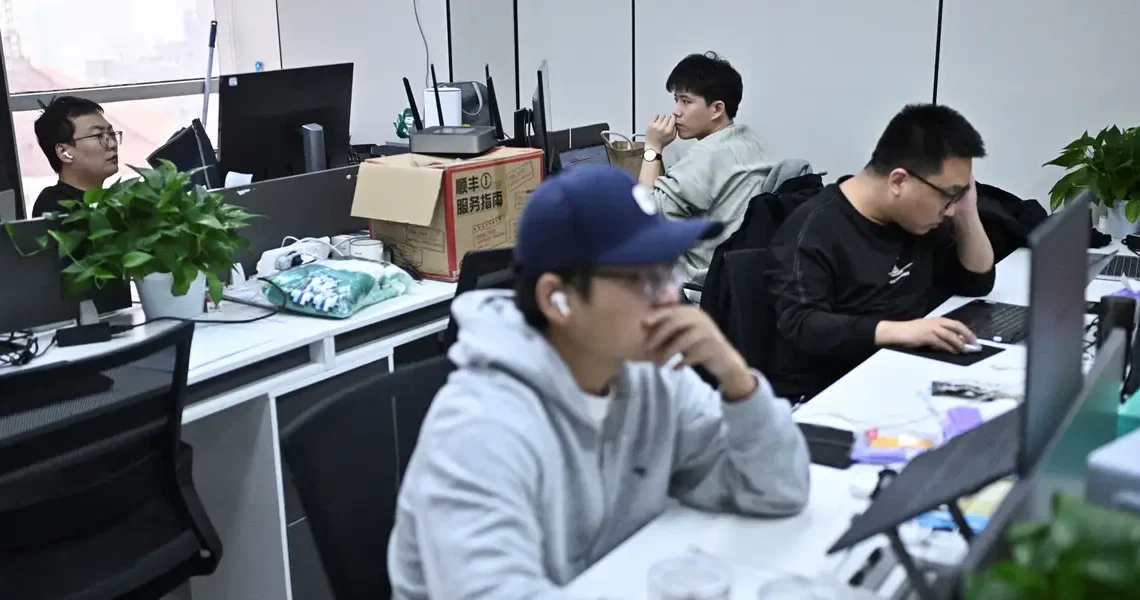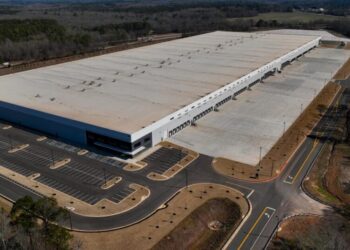PEDRO PARDO/AFP via Getty Images
A new Brookings Institution paper suggests that the artificial intelligence revolution may unfold like a classic boom-and-bust cycle — albeit not in markets, but in wages.
At first, automation could boost pay as workers become more productive alongside smarter tools.
However, as AI systems master more tasks, the demand for human workers in those areas could decline, potentially pushing people into lower-value or slower-growing jobs — and erasing those early gains.
In simulations, Konrad Kording, a University of Pennsylvania Integrates Knowledge (PIK) professor of Neuroscience, and Ioana Marinescu, an associate professor at Penn’s School of Social Policy & Practice, found that “automation in the intelligence sector first increases and then decreases wages.”
After the initial productivity surge, “negative effects dominate as most workers get iced out of intelligence tasks,” they wrote.
A wage boom that peaks before it breaks
To illustrate how the AI era might unfold, the researchers developed an interactive model that traces the transition from human-led to machine-led intelligence.
It charts a sharp early rise in wages as AI boosts productivity, followed by a plateau and then a decline once automation spreads.
Output continues to rise, even as pay slips, revealing how the gains increasingly flow to capital rather than labor.
As more cognitive work is automated, humans shift to slower-growing physical jobs — from construction to caregiving — which drives wages down.
The result is a hump-shaped curve: a brief wage boom, followed by a correction as the digital economy outpaces the physical world.
“Even as automation first increases wages, it can eventually lead to strong wage declines,” the authors said.
The limits of intelligence — and the case for a slower rollout
The paper rejects both extremes of the present AI debate — the techno-utopian dream of limitless abundance and the doomsday fear of total job loss.
Instead, Kording and Marinescu propose a middle ground they call “intelligence saturation”: AI can make economies smarter and more productive, but its gains eventually slow down because it still relies on humans, physical tools, and equipment to get work done.
To prevent that curve from turning against workers, the authors suggest slowing the pace of automation and investing in physical capital — machines, equipment, and tools — so that human labor can remain productive even as digital tasks vanish.
They also propose taxing virtual substitutes for in-person services to prevent AI from hollowing out entire industries, a proposal similar to Sen. Bernie Sanders’ call for imposing a “robot tax” on companies that adopt AI to replace jobs.
Read the original article on Business Insider
The post AI may lift wages — then crush them, professors say appeared first on Business Insider.




